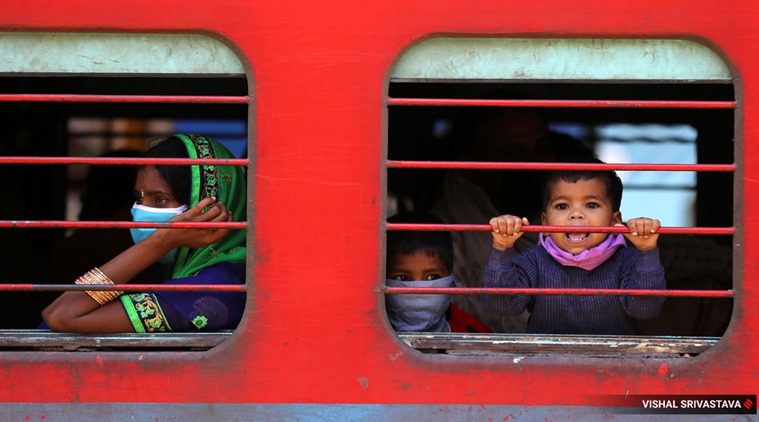 Under the Railway Act, any passenger dying or getting injured in what is called an “untoward incident” may seek compensation.
Under the Railway Act, any passenger dying or getting injured in what is called an “untoward incident” may seek compensation.
Families of several migrants who died on board the Shramik Specials can be given compensation under the “eggshell principle”, a former chairman of the Railway Claims Tribunal (RCT) has said.
Pointing to a 2018 judgment of the RCT that awarded Rs 8 lakh to the kin of a passenger who died after falling off the upper berth of a train, Justice K Kannan, who was RCT chairman until a year ago, said that while death of a passenger due to illness alone is not a ground for compensation, the “eggshell” principle in law allows for such a compensation
In the 2018 case, the Railways had contended that the victim had died because he had a pre-existing illness — similar to the position it has taken in the case of the deaths on board the Shramik Special trains. Close to 80 passengers have died on these trains so far, according to a list shared by Railway officials on Friday.
Explaining the “eggshell rule”, Justice Kannan told The Indian Express, “There is a principle called the eggshell rule, in which a person who is already fragile comes by and untoward incident (happens)… He is so ill that… he falls down, and something happens. So a normal person would not have died but this person would die. Then you (Railways) cannot bargain for every person to arrive in perfect and robust health. So if there is a fragile eggshell, in the form of a person, he needs to be compensated.”
Under the Railway Act, any passenger dying or getting injured in what is called an “untoward incident” may seek compensation.
When asked about the death of migrants on board Sharmik trains, Justice Kannan, formerly a judge at the High Court of Punjab and Haryana, said, “I would think it’s possible for a leader of the institution to take some views and then advise the officers to secure compensation even in cases of what would not have allowed for compensation in other times.”
Justice Kannan said the tribunal has in the past taken suo motu cognisance of passenger deaths and allowed compensation.
In the 2018 case, the victim, Ashok Ray, was travelling from Ludhiana to Chhapra on the Amrapali Express. He fell down from his berth and sustained injuries which led to his death when the train reached Old Delhi Railway station. Defending itself, the Railways had said: “The deceased died due to natural cause, as there was no sign of any injury and also there was no evidence, which proves that the deceased died in an untoward incident.”
Not satisfied, the court, while granting a compensation of Rs 8 lakh, ruled: “It is another way of saying that a man, fragile in health, would have gone without any further deterioration to his destination, but suffered death only on account of an exacerbation of such an assumed illness by a fall from the train. The… cause for death must…be taken as fall and if we must apply the… eggshell rule, we must take this to be an untoward incident.”
While Railway officials on Friday shared a list of 80 dead passengers on board Shramik trains, the Railways officially sought to distance itself from it. “Railway Ministry has not released any list like this as yet,” a spokesperson told the media.
The list, which has details of deaths on board Shramik trains from May 9 to 27, include a four-year-old boy in Bihar who died while on the platform, a Chapra-bound woman who died on her way home, and even people with illnesses such as cancer, “heart problem”, paralysis etc. Among the dead are a COVID-19 patient and a man who “jumped from a running train and got run over” by the same train. “He jumped because he belonged to Shahjahanpur and the said train was running to Gorakhpur,” the document said.
The list also has passengers who were rushed to hospitals, where they were declared dead and of those who died during the course of their treatment.